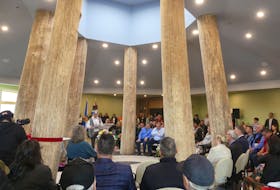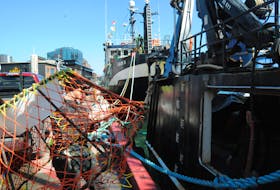The majority of Canadians now realize that COVID-19 is not going away anytime soon. While there is hope for a vaccine, it is doubtful we will return to life prior to March 2020 as we knew it. There are going to be lasting impacts for all of us as living and working in times of a pandemic become the new normal. The impact on the economy and workers will be prolific and lasting.
Nova Scotia is forecasting an $853 million budget deficit for the fiscal year ending March 2021. Part of that is caused by a shortfall in tax revenues of $532 million and a provincial COVID-19 response spending of $470 million. On a positive note, Nova Scotia's employment increased by approximately 37,500 between April and June, after experiencing a decline of 75,400 between February and April.
The most impacted sectors continue to include retail, tourism and food services. In Cape Breton, some of the most impacted industries include airports, cruise ports, golf tourism, restaurants and accommodations.
The travel, tourism and cultural sectors will take many years to fully recover. But this recovery is certain to be much different from past economic recoveries. So, what is Cape Breton to do to grow its economy and population during these changed times?
COVID-19 has accelerated a skills mismatch in the labour market. Digitization of our economy such as working from a home office, online shopping or online banking has accelerated a permanent change in how we will work, shop and bank going forward. Statistics Canada reports e-commerce sales in May 2020 increased 111 per cent from May 2019.
According to Statistics Canada, groups participating in low wage/low skill occupations may be displaced as a result of COVID-19 and the digitization of the economy. These include folks such as newly arrived immigrants, Indigenous people living off reserve and individuals living in families where the main wage earner has little education.
A labour market transition is certainly underway. It is being accelerated by COVID-19 and we will need a new focus to do our best to not miss this opportunity. We need to reimagine the new normal two, three, 10 years away, what the economic shift will look like and develop strategies for the reinvention of many Cape Breton industries and communities if they are to survive.
Don’t miss this opportunity to reinvent our communities.
One thing for sure is we are not likely to return to the economy we knew prior to COVID-19. Airports, cruise ports, golf tourism, restaurants and entertainment in Cape Breton will all need reinvention to survive.
Fortunately, the province through Develop Nova Scotia has already embarked on initiatives to increase highspeed broadband services to rural Cape Breton. A 21st-century step in the right direction.
Some Caper Breton residents have low digital literacy which widens the gap between those who can be successful in a more digitized world and those who cannot. Reliable, affordable and accessible home internet is still a significant issue for many. Access to devices, laptops, and technology support are barriers for many as well. This has all been exacerbated by the impact of job losses due to COVID-19. Much needs to happen to overcome these impediments to move forward.
Tourism is a major industry sector in Cape Breton. Provincially, the sector had a $2.64 billion economic impact in 2019 but is forecasting a major decline to a $900 million impact in 2020. The drop in tourism revenue and its financial impact is witnessed all across our island.
The Sydney and Port Hawkesbury airports have very few flights impacting their financial viability. The Sydney harbor cruise season was cancelled for 2020 and Cabot Golf which relies heavily on players from outside Nova Scotia closes one month early due to low patronization.
Yet Cape Breton has some of the most beautiful vistas for the tourist’s eye, some of the most affordable real estate in Canada and one of the best high-speed broadband networks located in our most densely populated communities.
As our economy continues its rapid switch to digital, it makes sense for our new mayors and wardens to become the front-line sales force to promote these assets to the world outside in an effort to attract digital workers and families to our communities. They need to become best friends with the CEOs of Nova Scotia Business Inc., Develop Nova Scotia, Tourism Nova Scotia, InnovaCorp and other provincial government agencies tasked with managing the reinvention of Nova Scotia’s economy. Don’t let the new arrivals all end up in Halifax.
Many residents around the world are looking for safe refuge for their families from COVID-19 and the stresses of big city life. There are few COVID-19 cases in Cape Breton. With high-speed broadband, a New York or Toronto investment banker can do their job from Cape Breton as well as from Wall or Bay streets. Don’t miss this opportunity to reinvent our communities.
Adrian White is CEO of NNF Inc, Business Consultants. He resides Sydney & Baddeck and can be contacted at [email protected].









